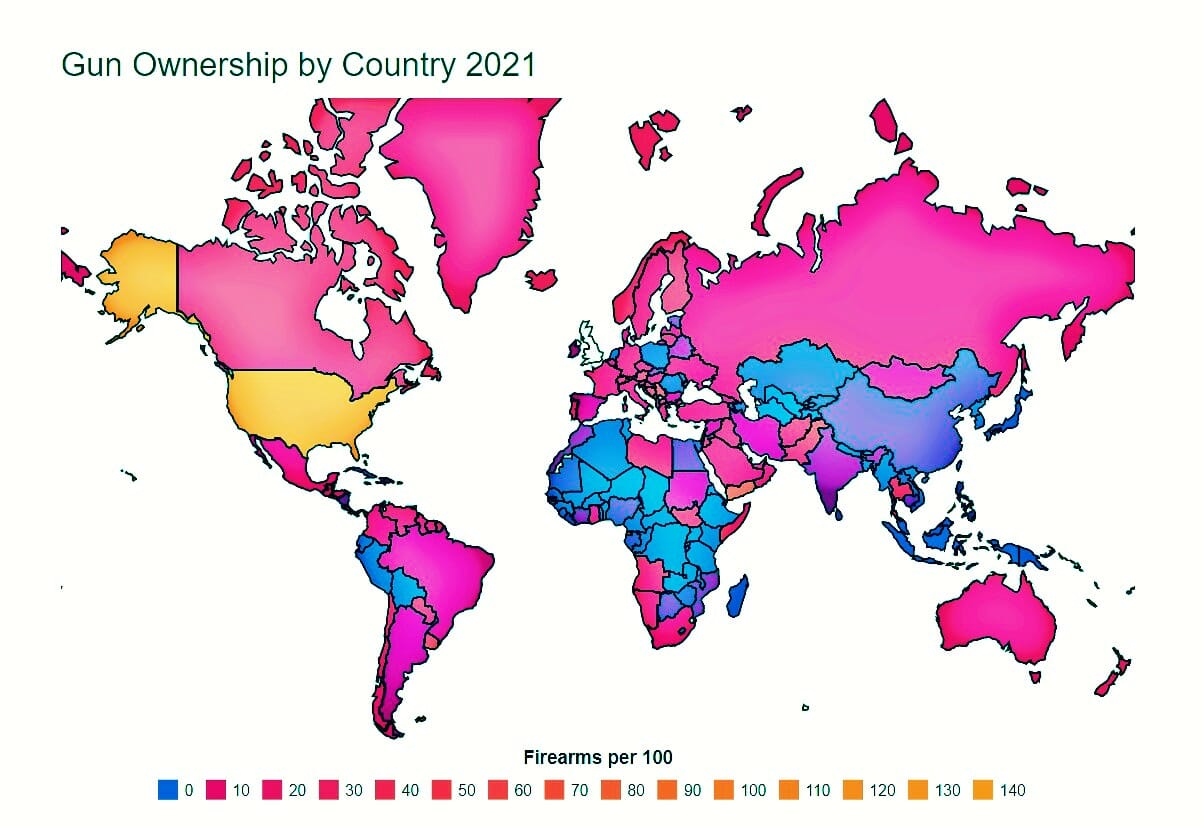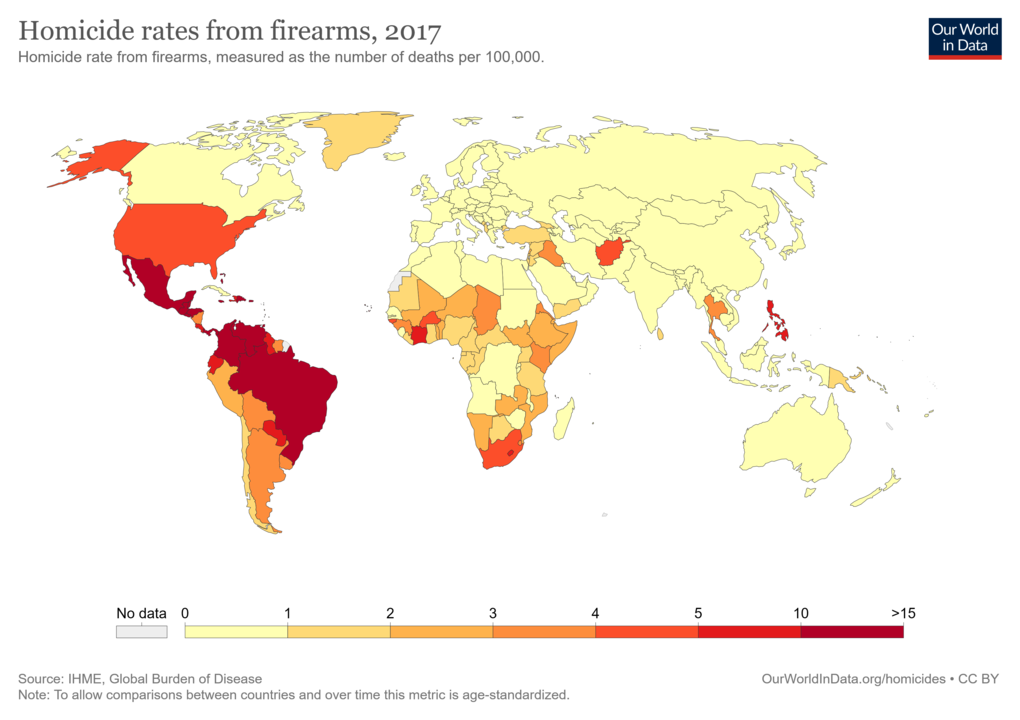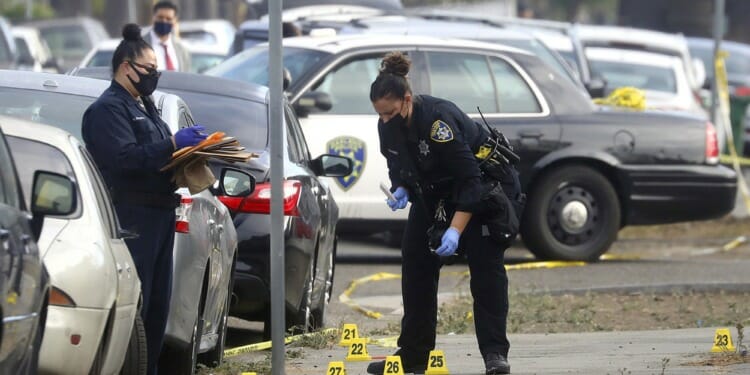With so many other cross-border issues we face, whether viruses, illegal drugs, immigration and human trafficking, kidnapping, and now cyber-crime, the attention to guns has largely fallen to the second tier of international concern. This is unfortunate because there are now many more ways to obtain – or construct a gun – making them untraceable, ungovernable, and difficult for authorities to know who owns guns and how many.
President Biden had promised a plan to curb gun violence that included giving anti-violence groups $5 billion. But now, with Senator Manchin announcing his opposition to the Build Back Better bill, Biden’s campaign promises to address climate change, health-care costs and child-care needs are effectively torpedoed – but so are his promises to address gun violence, at least for the time being.
That said, we have reasonable information on how different countries ostensibly regulate or choose not to regulate gun ownership. The variations range from stringent to virtually none at all.
Country Differences: They range from gun ownership rights to banning
Only three countries make civilian gun ownership a constitutional right, namely the United States, Mexico, and Guatemala. At one point some nine countries had such constitutional rights, “even included an explicit right to bear arms,” according to the New York Times, but these latter countries subsequently moved away from such an all-empowering right.
Taking a diametrically opposed approach, and not necessarily for admirable reasons, two countries ban outright civilian ownership – North Korea and Eritrea – and there are others that have very restrictive firearm laws in the world. These include China, India, Japan, Singapore, and Vietnam. One may reach one’s own conclusions as to why these countries have imposed such strictures.
It is important to go beyond gun ownership laws to gauge the prevalence of civil gun ownership, namely how many guns there are per 100 civilians, to the extent known. While not inclusive of all countries, the picture below presents the ten top countries with the highest civilian gun ownership. It is both surprising and unsurprising:
Top 10 Countries with Highest Gun Ownership (Civilian guns owned per 100 people):
- United States – 120.5
- Falkland Islands – 62.1
- Yemen – 52.8
- New Caledonia – 42.5
- Serbia – 39.1 (tie)
- Montenegro – 39.1 (tie)
- Uruguay – 34.7 (tie)
- Canada – 34.7 (tie)
- Cyprus – 34
- Finland – 32.4
Source: World Population Review, gun ownership ranking by country 2021
The world map of gun ownership gives a sense of the range of differences between countries:
 Americans own nearly half of all civilian-owned guns in the world. Compare the U.S. situation with both Taiwan and Indonesia which do not ban guns but have the lowest gun ownership rates possible, namely zero.
Americans own nearly half of all civilian-owned guns in the world. Compare the U.S. situation with both Taiwan and Indonesia which do not ban guns but have the lowest gun ownership rates possible, namely zero.
The Impact of Gun Ownership
Data on the numbers of firearms per population and their effect on crime rates is very difficult to develop with any statistical reliability. That said, there has been an effort to link the homicide rate to that of firearm availability.
Based upon various metrics, albeit imperfect metrics over multiple years, Singapore has the lowest firearm-related death rate in the world, with Venezuela being the highest.

What is not reflected in such data is the frequency and impact of a firearm being involved in a full range of criminal or violent activity. While it may not result in a homicide, a firearm has the effect of posing and exacerbating by its very presence the risks of injury, both physical and psychological to those threatened.
Effect on Daily Life and Security
The quality of individual life in all societies is a composite of multiple elements. The widespread availability of firearms in domestic settings, random shootings at which innocent victims are wounded or killed, has a particularly chilling effect on society as a whole. It is one aspect of failed governance that casts its shadow on communities.
Once there are frequent shootings, and it is known that guns are widely available, the psychological impact is almost as devastating as the physical harm.
In countries such as the United States. where there are daily news stories of gun violence, a sense of anxiety and likelihood of such violent events, at some point, are palpable.
Well before Covid, gun violence cast its shadow over the willingness of many to participate in public events and occupy open spaces. Coupled with poor records to solve or even address gun violence, the lack of faith in policing institutions does harm to the social fabric and erodes public trust.
What Can Be Done
There are multiple studies and books on the subject of strategies for disrupting trade in illegal domestic and international firearm markets, combatting arms trafficking, model laws against illicit manufacturing of firearm parts and components, and ammunition.
Unfortunately, many deals before the advent of the 3-D printer, the capacity to order online parts separately and home assemble. No country or region will be able to shield itself from technological advances and at least to this point, neither international agreements nor domestic laws have kept pace and provided effective tools to respond.
This could be a subject for “exceptional” U.S. leadership if things were different. Currently, gun legislation is handled at the local and state level, creating a piecemeal approach across the United States. It has opened the opportunity for gun smuggling with no checkpoints between those States with tough gun laws and those without.
For example, a driver in Chicago, Illinois, where there are tough gun ownership laws, could travel to Gary, Indiana in 30 minutes, purchase a firearm under weaker laws, and be back in Chicago in less than an hour.
As a result, the United States has more “known “guns than people, more people committing crimes with them, and a constitutional amendment supported by Supreme Court decisions, which allows it, seemingly blind to the fundamental and extensive harm done.
The “Pro-Life” community is committed to protecting the life of the unborn; it would stand to reason protecting the living citizenry from the excessive threat of bodily harm and murder, would be consistent with their legitimate beliefs. As things now stand it is simply bad and sad – a lost opportunity for the U.S. to set an example – at least so far.
Editor’s Note: The opinions expressed here by Impakter.com columnists are their own, not those of Impakter.com. — Featured Photo: Oakland police investigate a shooting on Nov. 4. Source: NBC News: Biden wants to give anti-violence groups $5 billion dollars. Here’s how it could be spent (published April 14, 2021). Photo by Aric Crabb / Bay Area News via AP file










